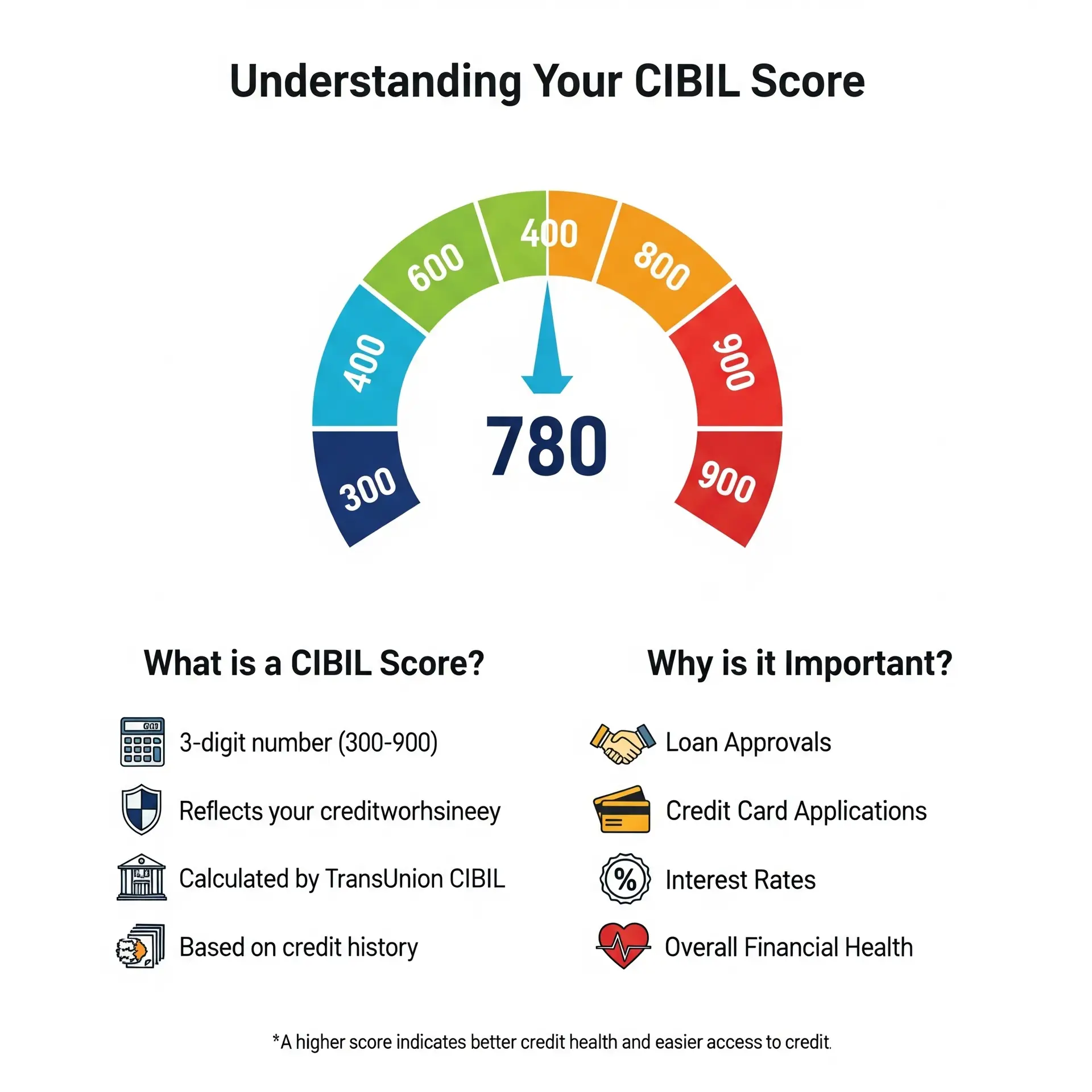In India today, whether you’re applying for a home loan, car loan, or even a credit card, one thing comes first — your CIBIL Score.
Issued by TransUnion CIBIL, this three-digit number is a snapshot of your financial reliability and plays a big role in how lenders see you.
What is a CIBIL Score?
Your CIBIL Score is a three-digit number between 300 and 900. The higher your score, the more financially trustworthy you appear to banks and lenders.
-
Excellent Score: 750 and above
-
Average Score: 650–749
-
Low Score: Below 650
This score is calculated based on factors such as:
-
Your loan repayment history
-
Credit card usage
-
Timely bill payments
Why is a Good CIBIL Score Important in India?
A strong CIBIL score offers multiple advantages:
-
Easier Loan Approvals – Banks are more likely to approve your loan and may offer lower interest rates.
-
Better Rental Opportunities – Many landlords now check credit scores before finalising rental agreements.
-
Improved Job Prospects – Some employers, especially in banking and finance, review credit scores during hiring.
-
Lower Insurance Premiums – Certain insurers use credit scores to determine premium amounts.
Factors That Impact Your CIBIL Score
To maintain or improve your score, pay attention to:
-
Payment History – Always pay EMIs and credit card bills on time.
-
Credit Utilisation Ratio – Keep your usage below 30% of your total limit.
-
Credit Mix – Maintain a balance of secured loans (home loan, gold loan) and unsecured loans (personal loan, credit card).
-
New Credit Applications – Avoid applying for multiple loans or cards within a short period.
-
Credit History Length – A long, clean history works in your favour.
How to Check Your CIBIL Score for Free
You can check your credit score online for free every year through:
-
CIBIL’s Official Website (once annually)
-
Trusted platforms like Paisabazaar and CreditMantri
💡 Tip: Review your score every 3–6 months to ensure accuracy and quickly address any errors.
Bottom Line
Your CIBIL Score is not just a number — it’s your financial reputation. Whether you’re an employee or a business owner, maintaining a score of 750+ can open doors to better credit opportunities, lower interest rates, and greater financial flexibility

